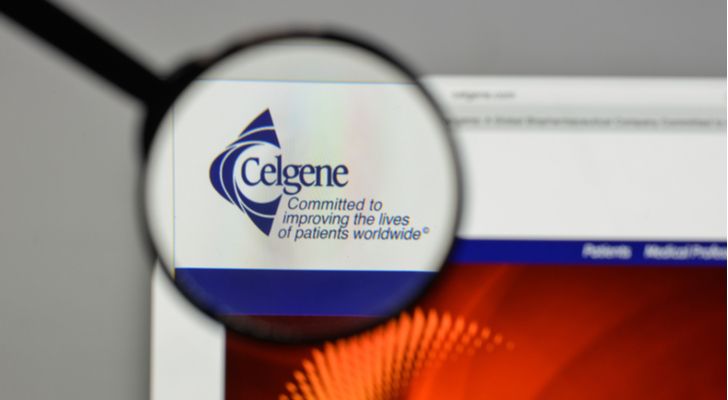Biotech has taken over the pharmaceutical sector. That is the lesson for investors in Bristol-Myers’ (NYSE:BMY) $74 billion deal to buy Celgene (NASDAQ:CELG) and its drug pipeline.
Under the deal, which values Celgene at $102.43 per share, up from $66.44 on Jan. 2, Celgene holders will get $50 in cash, one share of BMY and a Contingent Value Right, worth about $9, that could give them even more BMY stock, for each share of Celgene they own.
BMY shares staged a mini-crash after the deal was announced, dropping by 12%, and opened around $45 on Jan. 3. Celgene, of course, rose sharply, a gain of 30.3%, which still puts its opening price, around $86.89, well below the bid price on the deal.
What the BMY-Celgene Stock Buyout Means
The deal represents the takeover of the pharmacy sector — with its chemical-based treatments, distribution networks and regulatory relationships — by the biotech sector, with its blockbuster drugs based on careful study of genetics.
Celgene has a number of approved treatments for a range of conditions, from ADHD to psoriasis, the best known (and most heavily advertised) being Otezla, an immunosuppressant.
But what brought Bristol-Myers to the table was Celgene’s cancer pipeline, which includes treatments for leukaemia and multiple myeloma. Those drugs are expected to add $15 billion to Bristol-Myers’ revenue over the next few years.
Celgene shares had been under pressure throughout 2018, after plunging late in 2017 when the company reduced its guidance for 2020.
The price BMY is paying is 30% below the $146 per share Celgene was fetching before that warning.
A recent analysis of both stocks indicated Bristol-Myers was the better buy because of its Opdivo and Eliquis. The merger will likely lead to heavy promotion of Celgene’s upcoming drugs, and some name changes from things like TYK2 and bb2121 to words patients can demand from their doctors.
The Risks
Bristol-Myers, and the whole traditional pharmaceutical sector, are betting that blockbuster cures for cancer and other dread diseases will fetch any price they demand. They believe their lobbyists can push the new drugs through the Food and Drug Administration (FDA) approval process, and that its marketing arms can expand demand for them.
During 2018, Celgene was criticised for how it was handling its pipeline, and the deals it made to secure it. While analysts saw risks in the pipeline last fall, they were also seeing promise in it.
Many biotech deals involve partnership, milestone payments and other transactions that leave those doing the drug discovery work with a big share in the resulting proceeds.
One example is a 2017 deal Celgene signed with a Chinese company, Antengene, trading Chinese rights to one of its cancer drugs for equity and a board seat. Antengene promptly did a new funding round, securing Celgene a path to the Chinese market on both the sales and supply side.
The Bottom Line
Bristol-Myers had nearly $21 billion in sales for 2017, Celgene about $13 billion, but Celgene is taking $74 billion against Bristol-Myers’ (pre-deal) valuation of $85 billion (Ed’s note: BMY’s market cap is currently around $74 billion as of this writing).
This means Bristol-Myers will have to push Celgene’s pipeline to the market, cut costs and get maximum value from the drugs. If its estimates are correct, the combined company could have revenue of nearly $50 billion in a few years.
But as cloud computing and genetic discovery continue to accelerate, competition is bound to grow in certain disease areas, with governments and other payers pushing for lower prices, even on cancer cures.
It’s this tension that BMY stock investors will need to watch closely into 2019 and beyond.
Dana Blankenhorn is a financial and technology journalist. He is the author of a new mystery thriller, The Reluctant Detective Finds Her Family, available now at the Amazon Kindle store. Write him at danablankenhorn@gmail.com or follow him on Twitter at @danablankenhorn. As of this writing, he owned no shares in companies mentioned in this article.

